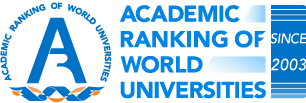| English Name: | Nara Institute of Science and Technology |
| Region: | Eastern Asia |
| Country/Region: | Japan |
| Found Year: | 1991 |
| Address: | 8916-5 Takayama |
| Website: | http://www.naist.jp/en |
Nara Institute of Science and Technology (NAIST) is a Japanese national university in Nara, Japan. Founded in 1991 and composed solely of graduate schools, NAIST promotes advanced research and technology that will contribute to global problem solving, while developing specialists who are prepared to lead the global science community.
NAIST Research Focus
NAIST’s three graduate schools are aligned with three priority areas indicated in the Japanese government’s science and technology policy, namely: information technology, biological sciences, and nanotechnology. The university also places great emphasis on the interfacing and integration of these three fields toward developing new research areas and the expansion of science as a whole.
NAIST Students
The university has a total of roughly 1,080 students (over 17% are international students), supported by just over 200 faculty members.
NAIST Graduate Schools
The Graduate School of Information Science focuses on “communication between society, people, and computers” and a network that is totally accessible, regardless of place, time, machine, or person. The fields of study are divided into computer science, medical informatics, and applied informatics.
The Graduate School of Biological Sciences core focus is to uncover various functions of microorganisms, plants, and animals at themolecular and cellular levels, establishing fields of research based on cellbiology, molecular biology, and bioinformatics while clarifying the basic phenomena of life and biological diversity.
The Graduate School of Materials Science approaches materials science through the interaction between light and materials and endeavors to understand the mechanisms of materials and light on all levels. The researchers here aim to create new materials, structures, and functions through their interdisciplinary research.
NAIST Globalization
NAIST promotes its global outreach by actively exchanging students and researchers worldwide. Every year, roughly 25% of NAIST students travel abroad to gain experience in different environments and to develop ties throughout the academic world. Our faculty is also active in establishing and improving global research networks through constant global outreach. In order to assist international students who wish to study here at NAIST, we offer graduate programs in English, provide convenient, reasonably-priced housing, assist in Japanese language education, and actively help students looking for financial aid. A large percentage of our international student population receives financial aid such as government scholarships, private scholarships, paid assistantships, and fee exemptions.
Although NAIST is a relatively young university, we were recently ranked 1st overall among Japanese national universities and 3rd in Japan by the Thomson ISI Citation Index. Our faculty has been ranked first in Japan for revenue for research expenses, grant-in-aid for scientific research, patent implementation revenue and number of business ventures.
Total Enrollment:
International Students:(%)
Undergraduate Enrollment:
International Students:(%)
Graduate Enrollment:
International Students:(%)
Graduate Programs
Advanced Polymer Science
Applied Stress Microbiology
Biocompatible Materials Science
Biodynamics And Integrative Biology
Bioenergetics And Biophysics
Biomimetic Materials Science
Biophysics
Cell Biotechnology
Cell Proliferation And Differentiation
Cell Signaling
Functional Neuroscience
Gene Expression Research
Gene Function In Animals
Genomics Of Bacterial Cell Functions
Information Device Science
Intercellular Communications
Microbial Molecular Genetics
Microelectronic Device Science
Molecular And Cell Genetics
Molecular And Developmental Biology
Molecular Neuroscience
Molecular Signal Transduction
Nanostructure Magnetism
Neuronal Cell Morphogenesis
Photofunctional Organic Chemistry
Photonic Device Science
Photonic Molecular Science
Plant Cell Function
Plant Differentiation And Morphogenesis
Plant Growth Regulation
Plant Metabolic Regulation
Plant Molecular Genetics
Plant Morphological Dynamics
Quantum Materials Science
Structural Biology
Supramolecular Science
Surface And Materials Science
Synthetic Organic Chemistry
Systems Microbiology
Theoretical Condensed Matter Physics
Tumor Cell Biology
Ultrafast Photonics

| ARWU | 2003 | 2004 | 2005 | 2006 | 2007 | 2008 | 2009 | 2010 | 2011 | 2012 | 2013 | 2014 | 2015 | 2016 | 2017 | 2018 | 2019 |
|---|---|---|---|---|---|---|---|---|---|---|---|---|---|---|---|---|---|
| Institutional Ranking |
401-500 | 404-502 | 401-500 | 401-500 | 403-510 | 402-503 | 402-501 | / | 401-500 | 401-500 | / | / | 401-500 | / | 501-600 | 701-800 | 801-900 |
| Broad Subject Fields | 2007 | 2008 | 2009 | 2010 | 2011 | 2012 | 2013 | 2014 | 2015 | 2016 |
|---|---|---|---|---|---|---|---|---|---|---|
| SCI | / | / | / | / | / | / | / | / | / | / |
| ENG | / | / | / | / | / | / | / | / | / | / |
| LIFE | / | / | / | / | / | / | / | / | / | / |
| MED | / | / | / | / | / | / | / | / | / | / |
| SOC | / | / | / | / | / | / | / | / | / | / |
| Subject Fields | 2009 | 2010 | 2011 | 2012 | 2013 | 2014 | 2015 |
|---|---|---|---|---|---|---|---|
| Mathematics | / | / | / | / | / | / | / |
| Physics | / | / | / | / | / | / | / |
| Chemistry | / | / | / | / | / | / | / |
| Computer Science | / | / | / | / | / | / | / |
| Economics/Business | / | / | / | / | / | / | / |
